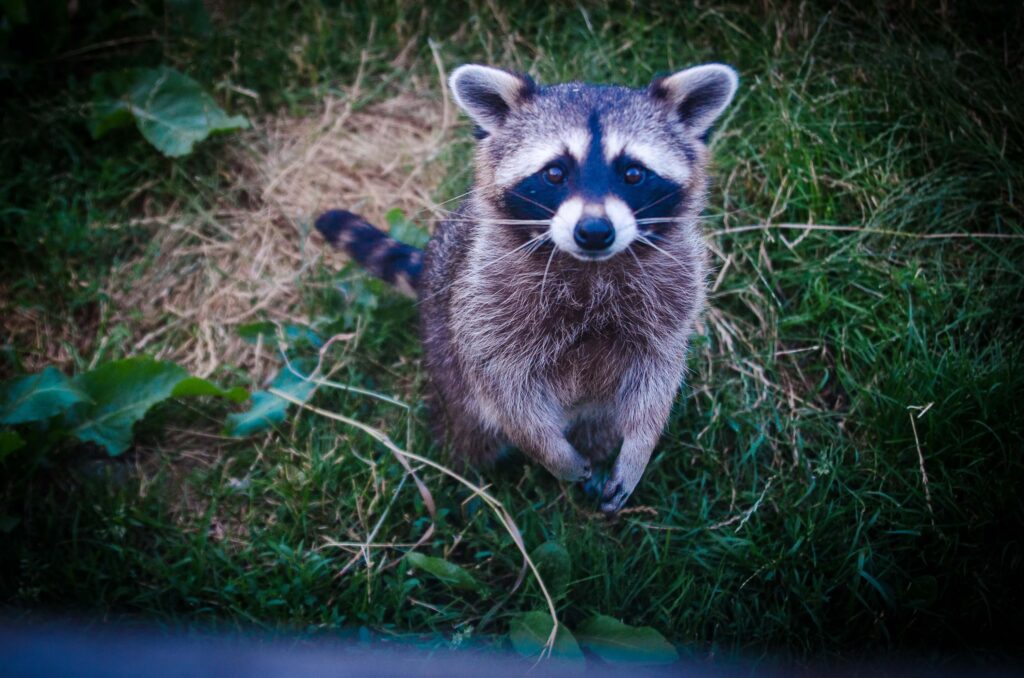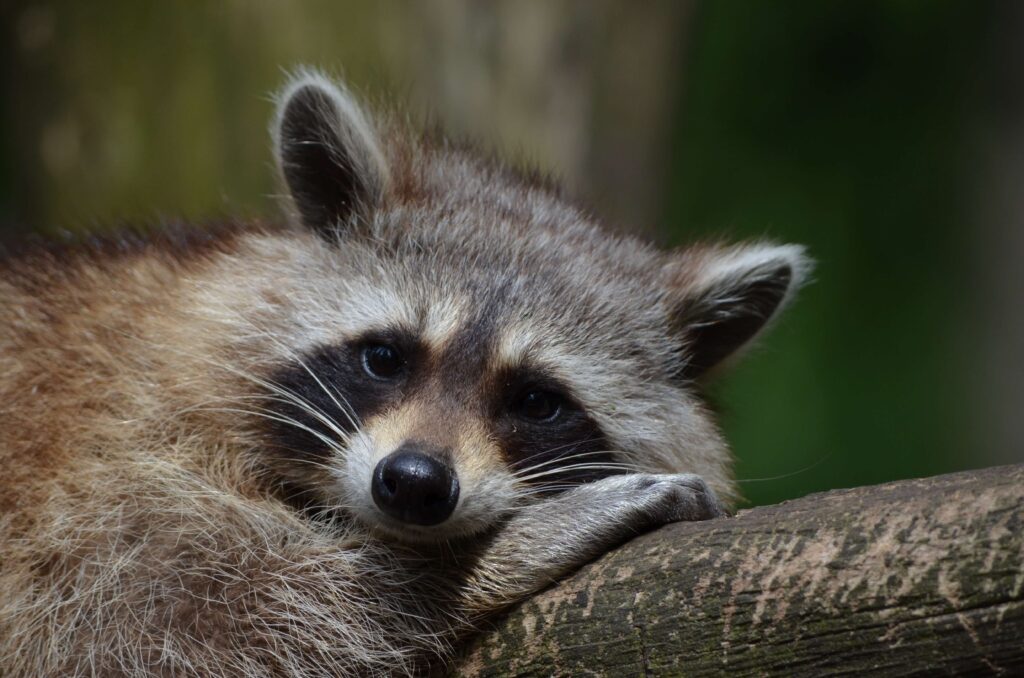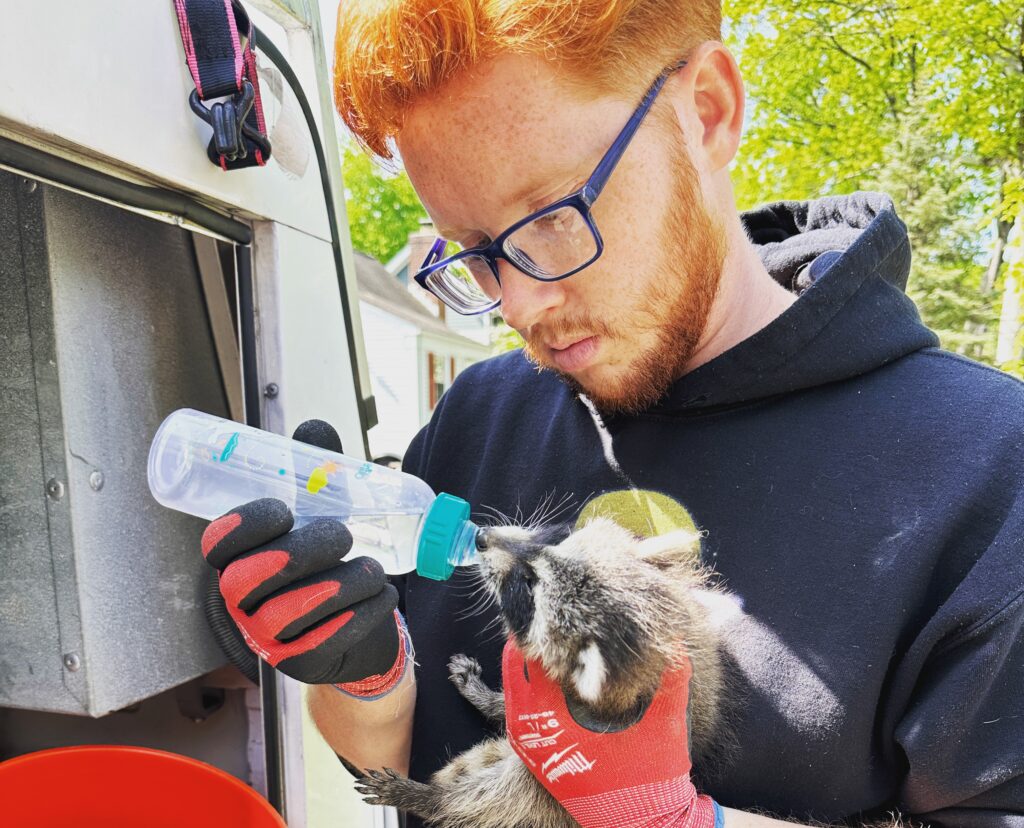Raccoon Removal in NJ is a crucial topic for homeowners and property managers alike. Raccoons, though often perceived as cute and curious creatures, can cause significant problems when they invade residential and commercial properties. In New Jersey, raccoons are particularly common, thriving in both urban and rural environments. Their adaptability means they can easily find food and shelter in areas where humans live, leading to frequent encounters.
The importance of raccoon removal cannot be overstated. These animals are not only a nuisance but can also pose serious health risks. Raccoons are known carriers of diseases such as rabies and leptospirosis, which can be transmitted to humans and pets. Additionally, they can cause considerable damage to buildings, gardens, and other property by rummaging through trash, tearing up insulation, and nesting in attics or basements.
Taking timely action to address raccoon infestations is essential for maintaining the safety and integrity of your property. Understanding their behavior, recognizing the signs of an infestation, and knowing the proper steps for removal can help mitigate the risks associated with these wildlife intruders. In this blog, we will explore expert tips and strategies for raccoon removal in NJ, ensuring that you are well-equipped to protect your home or business from these persistent pests.
Key Takeaways
- Early detection of raccoon signs like noises or tracks is crucial for timely intervention and minimizing property damage
- Prevention through securing garbage bins and sealing entry points can significantly reduce the likelihood of raccoon infestations.
- Humane removal methods, such as live trapping and relocation, ensure raccoons are handled safely and ethically.
- Professional assistance from wildlife removal services ensures compliance with local laws and effective resolution of raccoon issues.
- Understanding raccoon behavior and habits is essential for effective management and prevention of infestations in residential and commercial properties.
Understanding Raccoon Behavior
Understanding raccoon behavior is a vital aspect of effective raccoon removal in NJ. Raccoons are nocturnal animals, meaning they are most active during the night. This behavior often leads to their presence going unnoticed until significant damage has already been done. Raccoons are highly adaptable and intelligent, capable of finding food and shelter in a variety of environments. In New Jersey, they thrive in both urban and rural settings, making homes, garages, and even commercial buildings attractive targets for their foraging activities.
Raccoons are omnivores, with a diet that includes fruits, nuts, small animals, and human garbage. This diverse diet allows them to survive in many different environments, but it also brings them into frequent conflict with humans. They are known for their dexterous front paws, which they use to open garbage cans, access pet food, and even enter homes through unsecured openings.
The potential dangers posed by raccoons are significant. They can carry diseases such as rabies and raccoon roundworm, which can be transmitted to humans and pets. Additionally, their tendency to nest in attics, chimneys, and basements can lead to structural damage and costly repairs. By understanding their behavior, property owners can take proactive steps to prevent raccoon infestations and protect their property.
Signs of a Raccoon Infestation
Recognizing the signs of a raccoon infestation is crucial for timely and effective raccoon removal in NJ. One of the first indicators of a raccoon presence is the distinctive noises they make, especially at night. Homeowners may hear scratching, chattering, or thumping sounds coming from the attic, walls, or chimney. These nocturnal creatures are active when the surroundings are quiet, making their movements more noticeable during the nighttime.
Another sign of a raccoon infestation is the presence of raccoon tracks and droppings. Raccoon tracks are easily identifiable by their five-fingered paw prints, which resemble small human hands. These tracks can often be found near entry points, around garbage cans, or in the garden. Additionally, raccoon droppings are typically dark and tubular, often containing undigested food items. Finding such droppings around your property is a clear indication of raccoon activity.
Visual sightings of raccoons during the day can also suggest an infestation, as healthy raccoons are usually nocturnal. Daytime sightings might indicate that the raccoons are stressed, hungry, or displaced, all of which can lead to increased interaction with human environments. Another visual cue is the damage caused to property, such as torn insulation, ripped screens, or damaged shingles. Raccoons are known to be quite destructive when searching for food or creating nesting sites.

Humane Raccoon Removal Methods
Humane raccoon removal methods are essential for addressing raccoon infestations in NJ in a way that respects both the animals and the environment. One of the most effective and compassionate ways to handle raccoon removal is through live trapping and relocation. This method involves using specially designed traps that safely capture the raccoon without causing harm. Once captured, the raccoon can be relocated to a more suitable habitat, far from residential areas, where it can thrive without posing a risk to human property or health.
Exclusion techniques are another vital component of humane raccoon removal in NJ. These methods focus on preventing raccoons from entering homes or buildings in the first place. This involves identifying and sealing potential entry points, such as gaps in roofs, chimneys, and vents. By installing barriers like heavy-gauge mesh or metal flashing, homeowners can ensure that raccoons cannot gain access to attics or basements where they might nest.
Repellents and deterrents can also play a significant role in humane raccoon removal. Natural repellents, such as ammonia-soaked rags or predator urine, can be used to make an area less attractive to raccoons. Additionally, motion-activated sprinklers or lights can startle and deter raccoons from frequenting a property. These non-lethal methods help to encourage raccoons to move on without causing them harm.
FAQs
What are the signs that I have raccoons in my attic?
Raccoons leave behind distinctive signs such as loud noises at night, including scratching or thumping sounds. You may also find raccoon tracks near potential entry points, and their droppings are often dark and tubular.
How can I prevent raccoons from entering my home?
To prevent raccoons from entering your home, ensure all garbage cans are securely closed, seal any potential entry points such as gaps in your roof or vents, and avoid leaving pet food or birdseed outdoors.
Are raccoons dangerous to humans and pets?
Raccoons can be dangerous as they may carry diseases such as rabies and can become aggressive if they feel threatened. They can also transmit diseases through their droppings.
What should I do if I find a raccoon in my house?
If you find a raccoon in your house, it’s best to leave the area and contact a professional raccoon removal service. Attempting to handle a raccoon yourself can be dangerous due to the risk of bites or scratches.
Is it legal to trap and relocate raccoons on my own?
In many areas, it is illegal to trap and relocate raccoons without a permit. It’s important to check local wildlife regulations or consult with a wildlife removal expert to ensure compliance with the law.
Conclusion
In conclusion, addressing raccoon removal in NJ is not just about safeguarding your property but also ensuring the safety and well-being of your family and pets. Raccoons, while fascinating creatures, can wreak havoc if they infiltrate homes or businesses. From causing structural damage to potentially spreading diseases, their presence demands prompt and effective action.
By understanding the signs of a raccoon infestation and implementing preventive measures, homeowners can significantly reduce the risk of encountering these nocturnal intruders. Securing garbage cans, sealing entry points, and maintaining a tidy yard are essential steps in discouraging raccoons from settling in your vicinity.
If you suspect a raccoon infestation or have encountered one on your property, don’t hesitate to take action. Call Kritter Catchers now at (973) 747-5455 Their experienced team can provide immediate assistance and help restore peace of mind by effectively resolving your raccoon removal needs in NJ.


